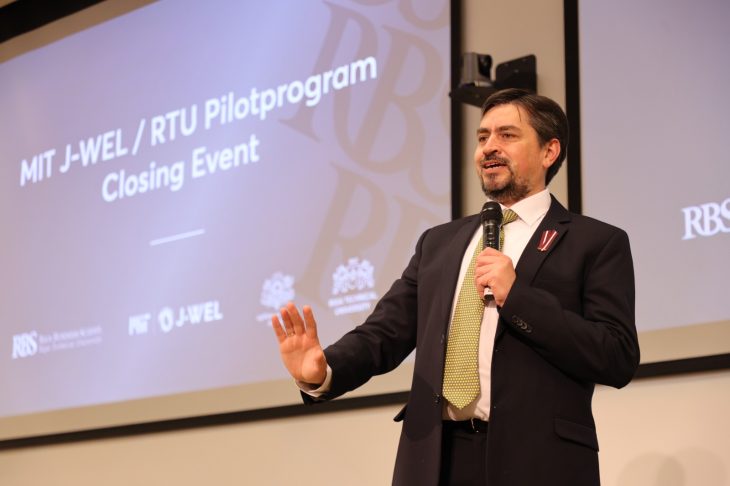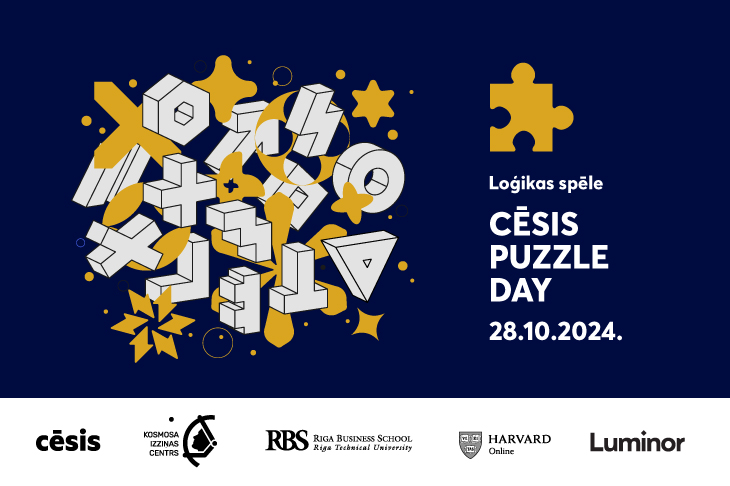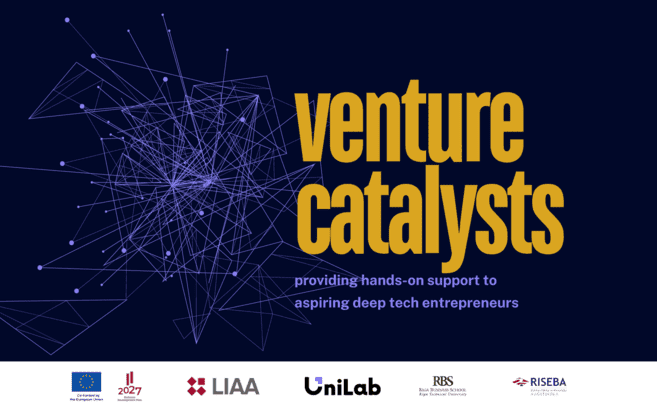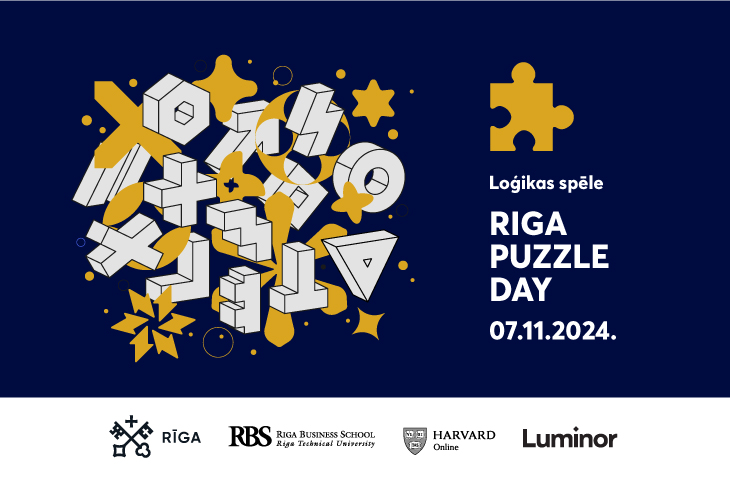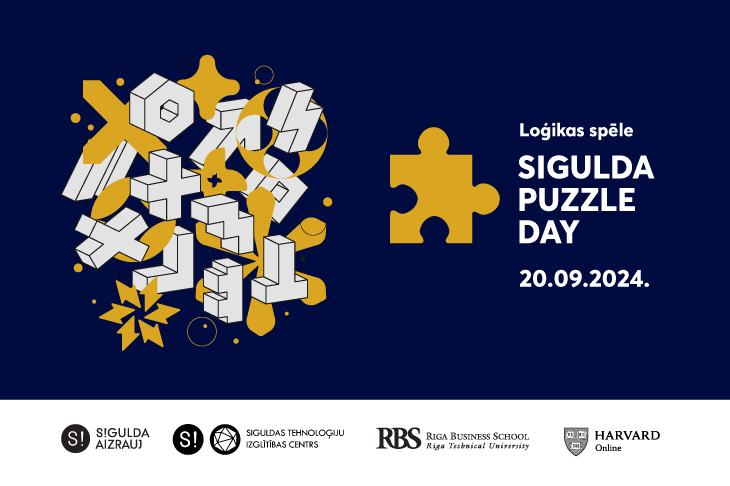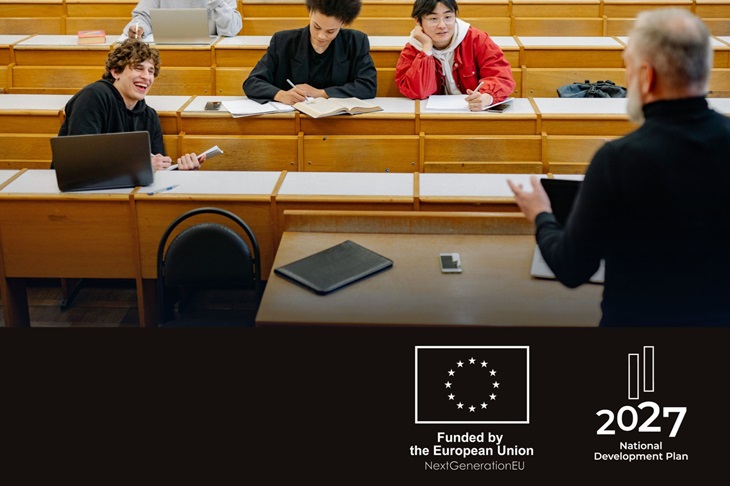The progress of Artificial Intelligence (AI) has evoked public concern about the role humans will play in the future labor market. Computers have mechanical thinking, but only humans possess the metacognitive capacity. AI will not eliminate humans from the labor market but will alter the skills necessary for a successful career. We must provide youth with an education that will prepare them for the future labor market and help them to acquire the capacity to solve problems, make decisions and use their human nature.
Capacity to solve problems
I think there are three major components for efficient problem-solving – global knowledge, an awareness of the impact of technologies, and robust critical thinking. The future labor market will require the ability to think on a global spectrum. Even today’s labor market possesses a global dimension, with companies in Latvia, such as Fintech Latvia, working with countries in Africa. Through international studies, we encourage young adults to look beyond their national borders to be successful not only in Latvia but also globally.
AI and technological developments can replace many mechanical processes with automatization, which we can already observe in manufacturing, commerce, and the customer service sector. It should not be feared – it should be employed! At Riga Business School, we teach our students to understand technology and how it changes businesses’ operations. Our graduates will be able to manage companies, human resources, and various other processes while understanding how to use technology effectively.
Business planning has also changed, leading to more competition in the labor market as product and process life cycles have shortened. Innovations are occurring faster, and the information environment has expanded. The future labor market has become an escape room where you must follow clues to find logic. Youth has access to knowledge that should be used as a guide because no one will give them a manual or a blueprint to follow. Through critical thinking, one can grasp the gravity of events and understand how these new and complex realities affect the corporate world. For example, society is increasingly demanding more proactivity from companies in relation to sustainability. Caring for the environment and sustainability are not novel values, but with the shift in ethical standards, there is an increased obligation for mainstream companies to take care of them too. Our current society is already demanding the ability to think across disciplines, and without this capacity, it will not be possible to work in large companies in the future.
Capacity to make decisions
Our future graduates will be working on problems that are, at their core, global, reshaped by technology, and influenced by society. The development of AI raises the question of whether technologies such as Chat GPT could be used to solve these complex problems. This technology will always have an answer to a question or a problem, but we need to recognize that Chat GPT is programmed to give any answer, whether it’s right or wrong. Big Data and AI tools are built on existing data, which makes them capable of providing options or potential scenarios. They will never replace human agency and educated intuition. Decision-making will remain in the hands of people, including our graduates.
The Greek word “phronesis” symbolizes practical wisdom, which enables humans to make the right decisions on a particular issue or situation. Machines do not possess this wisdom, but they can lead us in the right direction. For example, timing is the key factor for success when you develop a new product or start-up. Airbnb had a very fortunate start-up time – the Second Great Depression – when people needed money and were willing to rent out their rooms, and tourists didn’t have enough money to go to hotels. Airbnb created a solution, but AI could not predict whether it was the right time. Interdisciplinarity generates an understanding of several topics and fields simultaneously, which contributes to the emergence of a robust educated intuition.
Capacity to be human
For organizations and businesses to succeed, their leaders need to have strong soft skills. They must be able to motivate, attract and build relationships with people. A machine will never have these skills. The business leaders of the future need to know psychology and ethics to understand humans and work effectively with them. The same goes for culture, which is why through our cooperation project with Africa, we gave ambitious young women from African countries the opportunity to join an entrepreneurship training program and study together with students from Riga Business School. Everyone had the chance to learn about entrepreneurship and to work on projects with people from different cultures.
The future labor market suggests we can no longer offer fragmented learning, where young people learn ethics, sustainability, or mathematics in isolation. In reality, these subjects are tightly intertwined and do not exist in isolation. Similarly, the decisions that entrepreneurs make must mirror this reality. The labor market of the future requires interdisciplinarity and synergies of expertise.
Claudio Rivera, Riga Business School Deputy Director, Bachelor Programme Director
